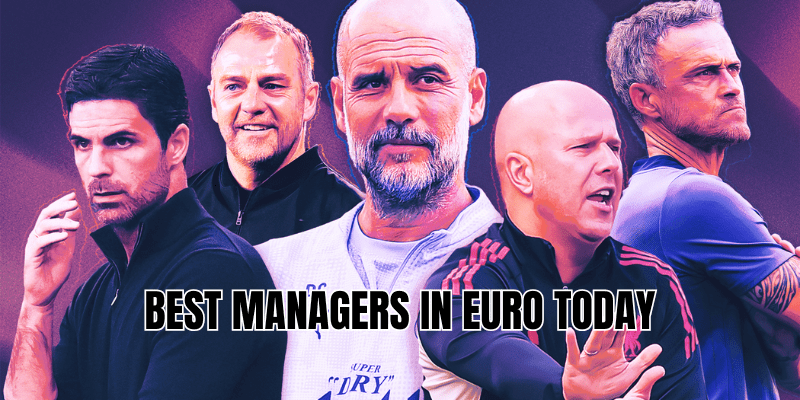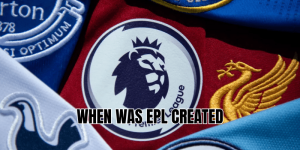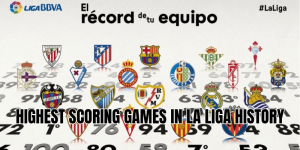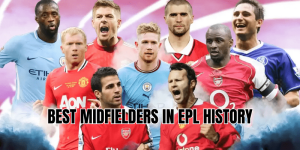When football fans debate who’s calling the shots on the sidelines across Europe, one question keeps coming up: who are the best managers in Europe today? At DaoKick, we’ve watched the recent seasons, dissected tactical revolutions, and followed every drama in dugouts. In this article, DaoKick will guide you through the current elite — the ones not just winning trophies, but shaping the future of the game.
What Makes A Manager Among The Best?
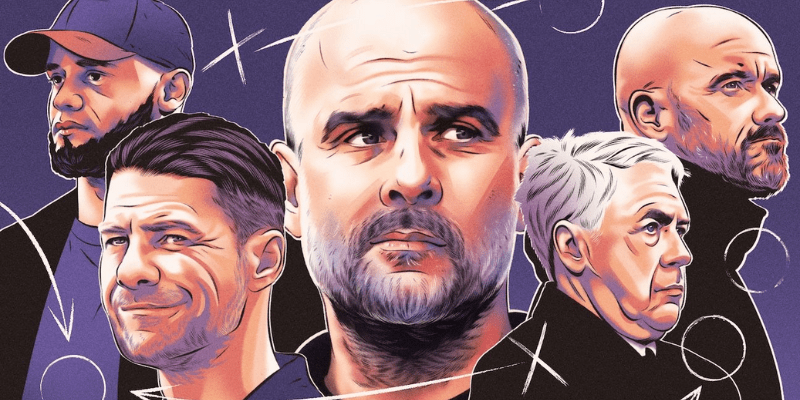
Before naming names, it’s worth asking: what criteria elevate a coach into “best in Europe” status? It’s more than silverware. Here’s what we look at:
- Trophy haul and consistency — Domestic titles, Champions League runs, cup success.
- Overachieving vs. expectations — Winning without the biggest squads.
- Tactical innovation & adaptability — Can they change mid-match or bring something fresh?
- Man-management & leadership — Keeping a squad motivated, navigating egos.
- Longevity and resilience — Surviving the bad runs, staying relevant over seasons.
With those in mind, here are our picks for the best managers in Europe today — the ones writing the game’s next chapters.
The Top Tier: Legends Still Leading
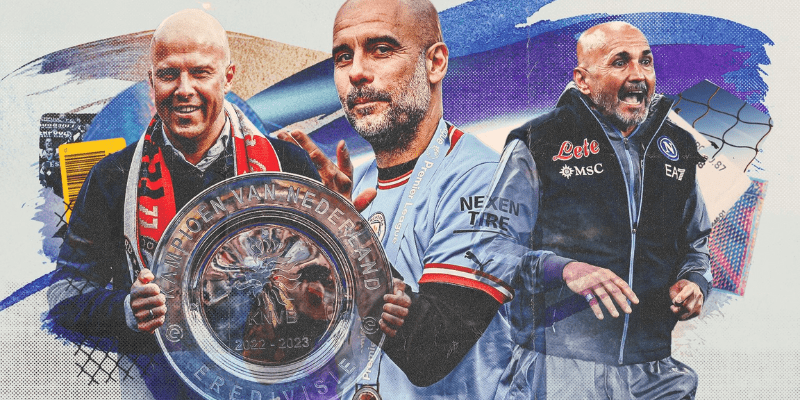
Pep Guardiola
Arguably still the benchmark. Since his arrival at Manchester City, Guardiola has steered them through multiple league wins, domestic cups, and deep Champions League runs. His possession-based, high-pressing football is studied globally. Even when the squad ages or players transfer, Guardiola’s ability to reconfigure his patterns makes him a perennial contender at the top.
Carlo Ancelotti
A master of situational management, Ancelotti’s calm, adaptive style allows him to succeed where many struggle. With a record five Champions League trophies as a manager — no one surpasses that — he’s proven his ability even across eras. He mixes man-management brilliance with strategic shifts when needed.
Jürgen Klopp (if active) / The Transitional Edge
While Klopp recently stepped down, his shadow still looms. His high-intensity gegenpressing style reshaped modern football’s approach to attacking transitions, and any manager building a team today has to reckon with his legacy.
The New Giants: Rising (or Resurgent) Coaches
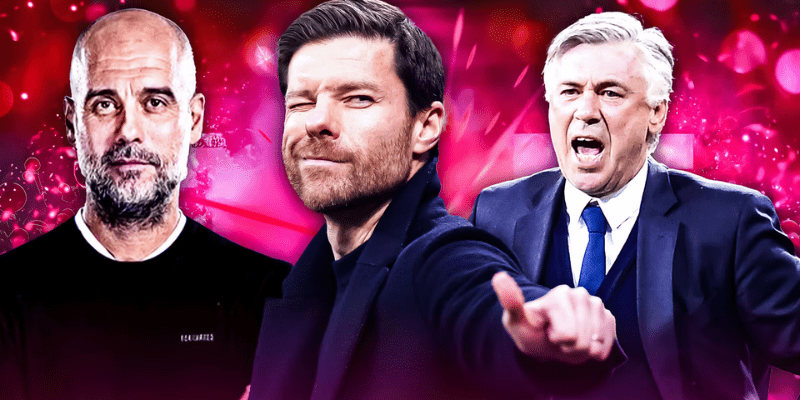
Arne Slot
A rising star who justified his hype by winning the Premier League in his first season at Liverpool — a feat few have achieved. Slot brings Dutch positional systems married to modern pressing overloads. His tactical maturity at only mid-40s suggests he’ll be influencing European coaching curves for years.
Hansi Flick
After a somewhat turbulent start at Barcelona, Flick rebounded by delivering a double (La Liga + Copa del Rey) and pushing his team into tactical identity. His background in German national team stints, plus experience at Bayern, gives him both credentials and flexibility.
Simone Inzaghi
Often underestimated, Inzaghi has shown he can lead under pressure. His work at Inter, pushing deep runs in Europe and competing with heavyweights, marks him as a coach who balances pragmatism with moments of audacity.
Xabi Alonso
One of the freshest names to crack serious elite conversation, Alonso has impressed with Leverkusen. He blends a modern midfield-centric philosophy with his playing instincts. He may not have decades of trophies yet, but his tactical imprint is clear.
Francesco Farioli
Still on the rise, Farioli’s appointment at Ajax put him into the spotlight. His coaching is defined by positional fluidity, defensive structure, and youth integration. He’s not yet an “elite” in trophies, but highly respected as a future high-flyer.
Honorable Mentions & Stalwarts
- Antonio Conte — Still dangerous. His track record across Italy, England, and now Napoli proves he can get big results, though his style demands physical and mental strength.
- José Mourinho — Controversial but always compelling. His tactical pragmatism and big-match instincts still influence many.
- Other names — Coaches like Mikel Arteta, Thomas Tuchel, or tactical architects in smaller leagues may not always have the trophy cabinets, but they push boundaries and deserve attention.
How These Managers Differ From The Rest
| Attribute | Top Elite Coaches | Typical Coaches |
| Innovation under pressure | Reinvent systems mid-season | Stick to preferred structure |
| Squad rotation & youth use | Rotate without losing identity | Drop quality when rotating |
| Big-match performance | Rise in finals, comebacks | Often cave in under pressure |
| Longevity & legacy | Influence future styles | Fade after a few seasons |
The best in Europe today don’t just win — they create trends, mentor the next generation, and remain relevant even when football evolves.
Challenges & Watchouts
Even the greats face challenges:
- Overexposure & fatigue — maintaining intensity season after season is a test.
- Player power & turnover — top coaches must manage locker room politics, not just tactics.
- Tactical countermeasures — as rivals study them, they must stay unpredictable.
- Sustainable success vs. flash peaks — Some coaches burn bright for a season. The true test is staying on top for a decade.
Conclusion
Best managers in Europe today are more than winners — they are architects, innovators, and emotional leaders. From Guardiola’s flawless systems to Slot’s rising revolution, these coaches are writing the next chapters of European football.
At DaoKick, we believe these managers are essential reference points for anyone following the beautiful game. Keep an eye on them, debate them, but above all watch how they push football forward.
If you enjoyed this analysis, stick with DaoKick — we’ll bring you in-depth profiles, trending tactics, match reviews, and the next surprise names destined for managerial greatness.
